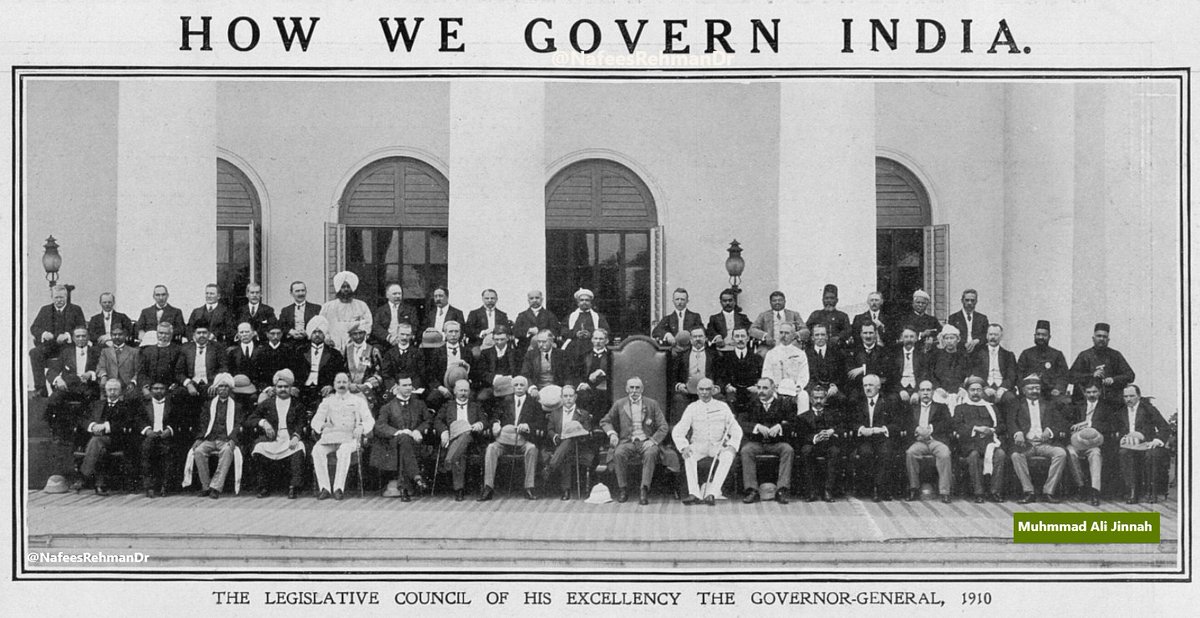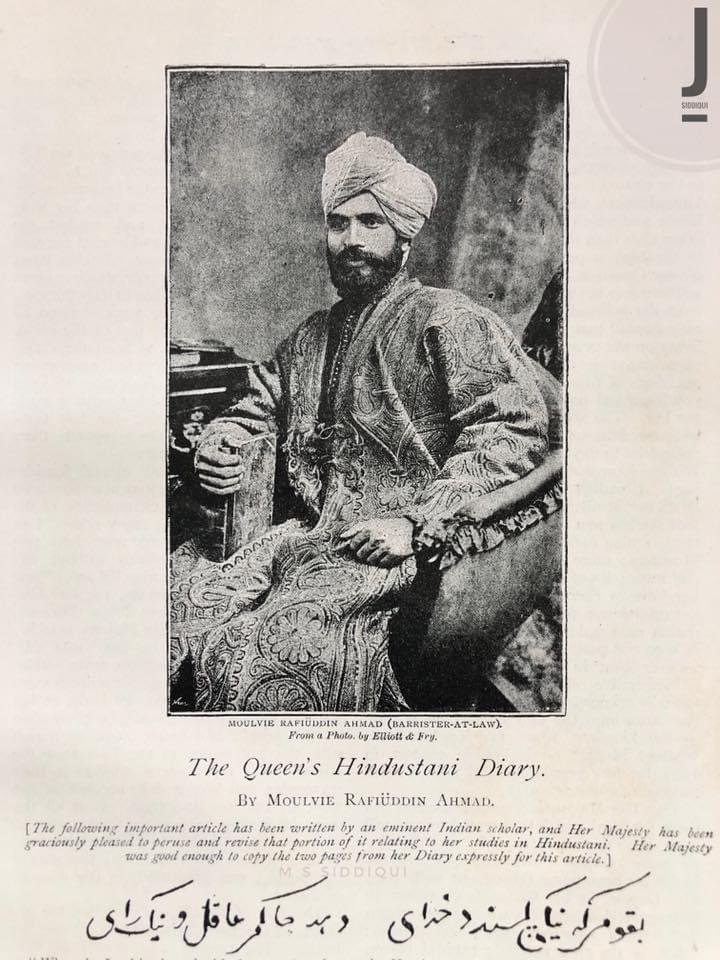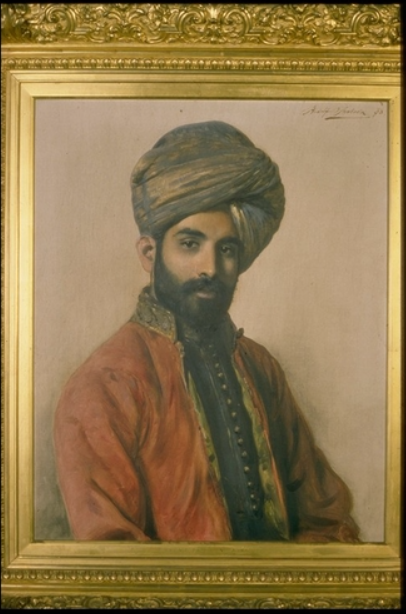A lesser known but important fact about Maulvi Rafiuddin is that he caused the first ever judicial inquiry to probe rigging/corruption in elections in the history of British-India.
The man he alleged to have given a bribe of Rs. 500/ to buy vote was Mohammad Ali Jinnah! https://twitter.com/MHuzaifaNizam/status/1385537485753786368">https://twitter.com/MHuzaifaN...
The man he alleged to have given a bribe of Rs. 500/ to buy vote was Mohammad Ali Jinnah! https://twitter.com/MHuzaifaNizam/status/1385537485753786368">https://twitter.com/MHuzaifaN...
Maulvi Rafiuddin& #39;s allegation against Jinnah came after the latter was elected to the Imperial Legislative Council in Jun,1913. The council& #39;s gov. appointed a session judge, Mr. Perceval, to hold an inquiry into the allegation. The Inquiry is known as the Puna Election Inquiry.
When Jinnah came to know about the allegation and inquiry ordered, he wrote multiple letters and telegrams to the govt to hold a public inquiry for all to see by a judge of the high court.
Maulvi Rafiuddin was represented by Barrister Benning while Jinnah defended himself.
Maulvi Rafiuddin was represented by Barrister Benning while Jinnah defended himself.
The inquiry lasted for abt a month between Oct-Nov 1913. Since it was first of its kind of inquiry, the Evidence Act of India didn& #39;t fully apply neither could it frame issues nor could ensure attendance of witnesses but instead could present a report to govt. to accept or reject.
Interestingly enough, on the first day of the inquiry, barrister Benning representing Maulvi Rafiuddin took exception to the inquiry being a public one. To this Jinnah produced all his correspondences and the judge told Benning that the govt had objection to public inquiry.
Please remember that the electorate of the non-official members of Imperial/Central legislative council under the Indian Council Act 1909 included non-official members of prov. councils, select land owners & Muslim elite, and chamber of commerce — Election by the selected ones.
It was all part of the notion that the British intended to give self-govt to Indians gradually and to prepare them for parliamentary democracy. Anyways, it is a separate topic altogether.
The charge against Jinnah was that Mr. Ibrahim Haroon Jaffer, acting as election agent of Jinnah, gave a bribe of Rs. 500/ to Mr. Ghulam Ahmad to influence Mr. Pathan to vote for Jinnah while Mr. Pathan had promised his vote to Maulvi Rafiuddin.
Jinnah contested that:
 https://abs.twimg.com/emoji/v2/... draggable="false" alt="▫️" title="Weißes kleines Quadrat" aria-label="Emoji: Weißes kleines Quadrat"> He neither knew Ghulam Ahmad nor he believed that he could influence Mr. Pathan in any way.
https://abs.twimg.com/emoji/v2/... draggable="false" alt="▫️" title="Weißes kleines Quadrat" aria-label="Emoji: Weißes kleines Quadrat"> He neither knew Ghulam Ahmad nor he believed that he could influence Mr. Pathan in any way.
 https://abs.twimg.com/emoji/v2/... draggable="false" alt="▫️" title="Weißes kleines Quadrat" aria-label="Emoji: Weißes kleines Quadrat"> Mr. Ibrahim Haroon Jaffer was not his election agent and there was no evidence to all this transaction.
https://abs.twimg.com/emoji/v2/... draggable="false" alt="▫️" title="Weißes kleines Quadrat" aria-label="Emoji: Weißes kleines Quadrat"> Mr. Ibrahim Haroon Jaffer was not his election agent and there was no evidence to all this transaction.
 https://abs.twimg.com/emoji/v2/... draggable="false" alt="▫️" title="Weißes kleines Quadrat" aria-label="Emoji: Weißes kleines Quadrat"> He had already enough votes (6) for election.
https://abs.twimg.com/emoji/v2/... draggable="false" alt="▫️" title="Weißes kleines Quadrat" aria-label="Emoji: Weißes kleines Quadrat"> He had already enough votes (6) for election.
I& #39;m sharing a summary all what was said & presented but there is much more details to all that proceedings.
The reason(s) Maulvi Rafiuddin behind that allegation might well be explained that Jinnah had defeated him already in the 1910 council& #39;s election to 5-to-3 votes.
The reason(s) Maulvi Rafiuddin behind that allegation might well be explained that Jinnah had defeated him already in the 1910 council& #39;s election to 5-to-3 votes.
Interestingly, Maulvi Rafiuddin and Mr. Ibrahim Haroon had had working relationships in the past and the latter had supported the former in various ways in his bid to be elected to the council, materially & monetarily.
But the two fell apart and Mr. Ibrahim Haroon approached Jinnah to represent him against Maulvi Rafiuddin to settle pending financial issues - which Jinnah had refused.
The point being that there was a history of dispute between the Maulvi and Haroon. The matter was further exacerbated when he lost twice in a row to Jinnah in the central/imperial council& #39;s elections.
On the closing day of the inquiry, Jinnah said nothing could compensate him for the reckless aspersions which had been cast on hi and the mental torture and persecution he had undergone and he hoped he left the court with his honor and reputation unsmirched.
Here is a rare photo of the Governor General& #39;s Indian Legislative Council, 1910. You can see Jinnah seated 2nd from R-to-L.
Jinnah continued working actively in the council and legislating on matters of importance to India, and representing Indians and foremost Muslims issues in the council for the next 3 years.
However, when the British govt brought Rowlatt Act 1919 to suppress independence and nationalist movement in India post WWI, Jinnah resigned in protest from the council taking a different course of politics that concluded with British quitting and partitioning India.
Maulvi Rafiuddin Ahmed had remained tutor of Queen Victoria helping her learn Hindustani and had received support from the queen in various ways including when he was sent to the Ottomon& #39;s court in the late 1890s on behalf of the British govt. He was also knighted in 1930s.
Lastly, this portrait of him by Rudolf Swoboda was commissioned by Queen Victoria herself.
Source: https://www.rct.uk/collection/search#/1/collection/403825/maulvie-raffiuddin-ahmad">https://www.rct.uk/collectio...
Source: https://www.rct.uk/collection/search#/1/collection/403825/maulvie-raffiuddin-ahmad">https://www.rct.uk/collectio...

 Read on Twitter
Read on Twitter







